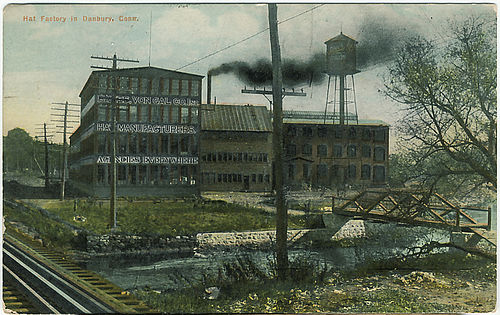The “Hat City” of Danbury made news in 1902 when hat manufacturer, Dietrich Loewe, refused to recognize the hatters’ union. Most of his employees went on strike, lured by the promise of higher union wages. Loewe resumed work with a scab crew, and the striking workers organized a boycott. The boycott was carried to other states wherever Loewe’s hats were sold.

Loewe began a lawsuit, and after six years in federal courts, the U.S. Supreme Court in 1908 ruled against the strikers. Seven years later, the Court again decided in favor of Loewe upholding a lower federal court ruling allowing him to collect damages. Faced with the possibility of losing their homes, the workers’ union organized a “Hatters’ Day” asking for an hour’s pay from members to help pay the fines.
See: Loewe v. Lawlor, 208 U.S. 274 (1908), 235 U.S. 522 (1915) ![]()
Doses of Connecticut Legal History
SOURCE: CT Judicial Branch
